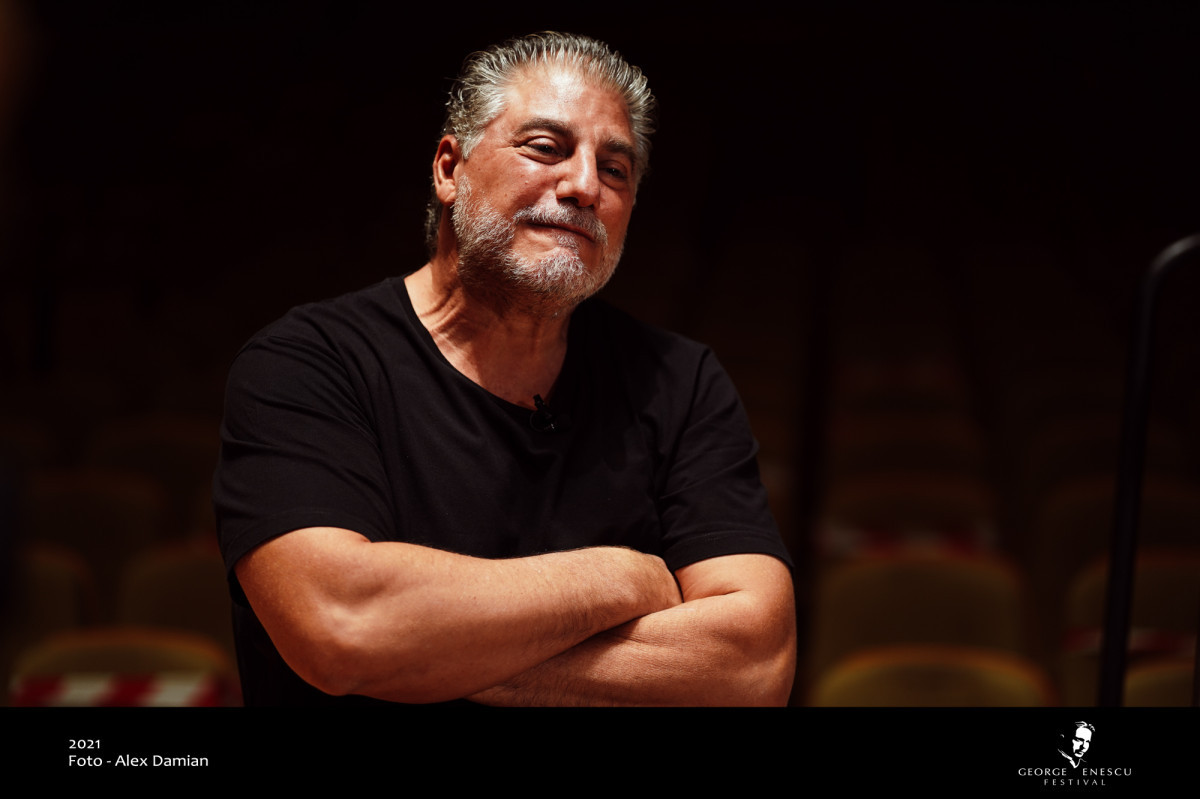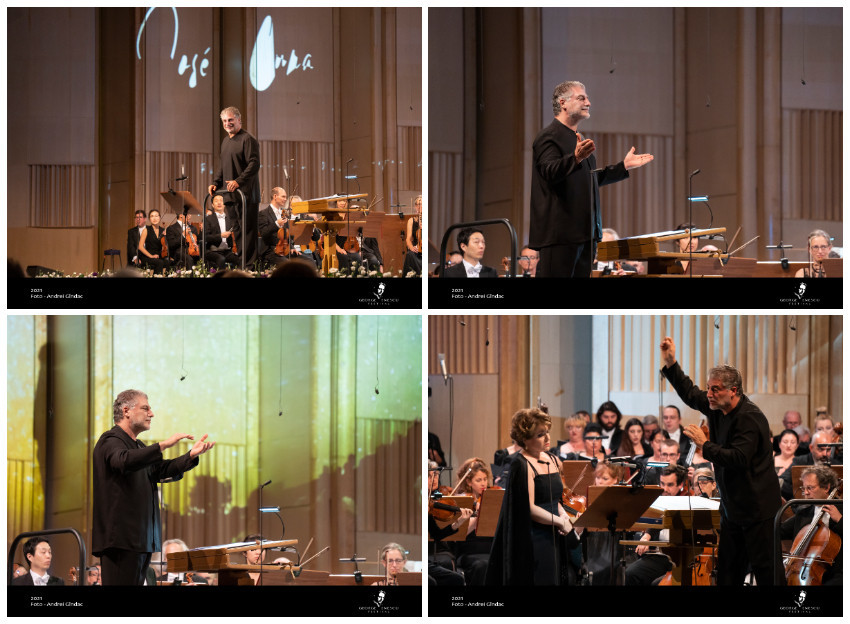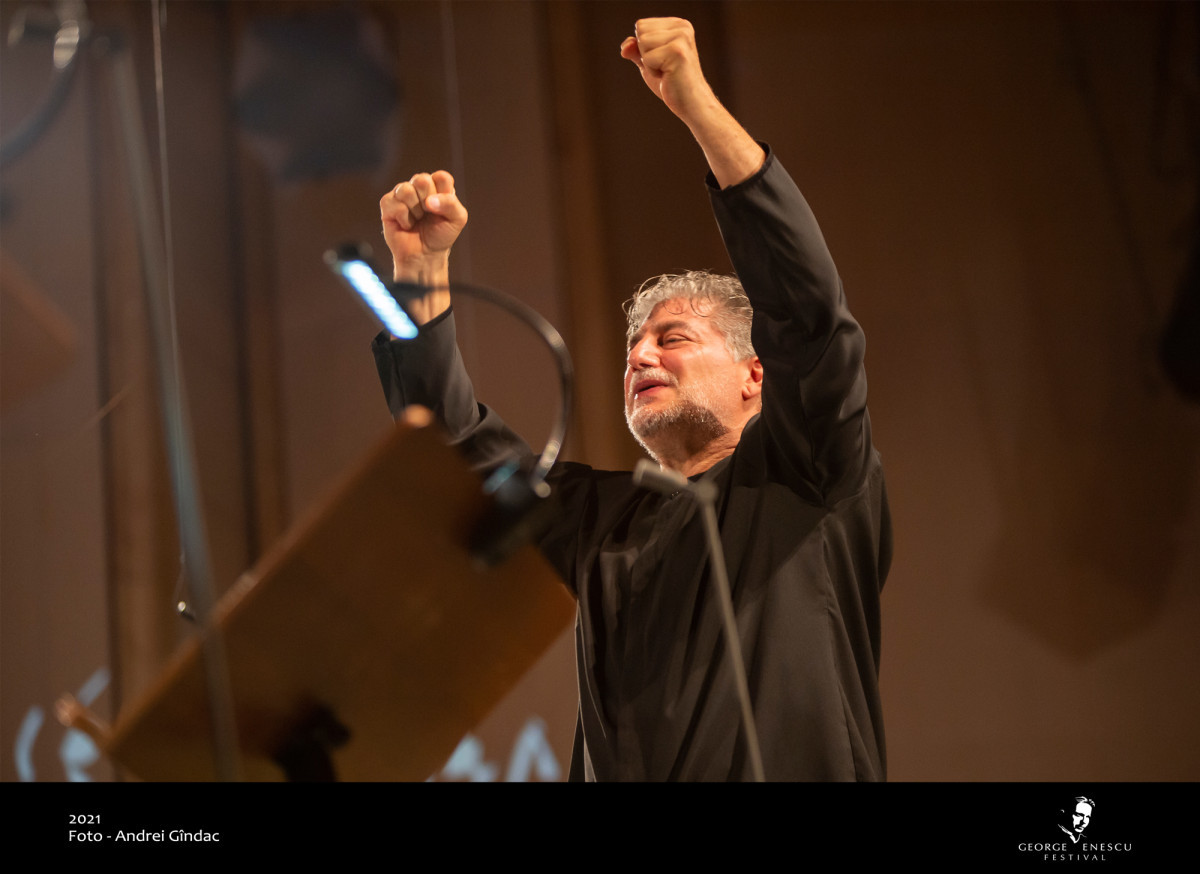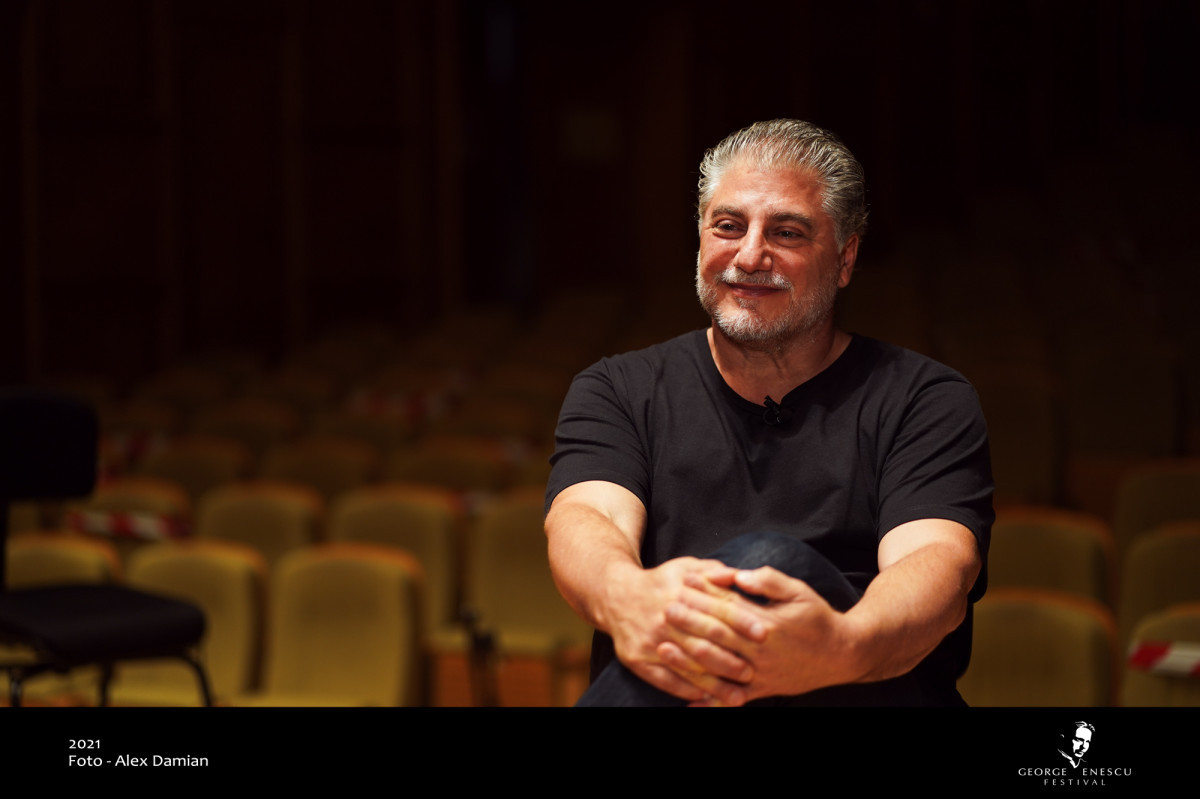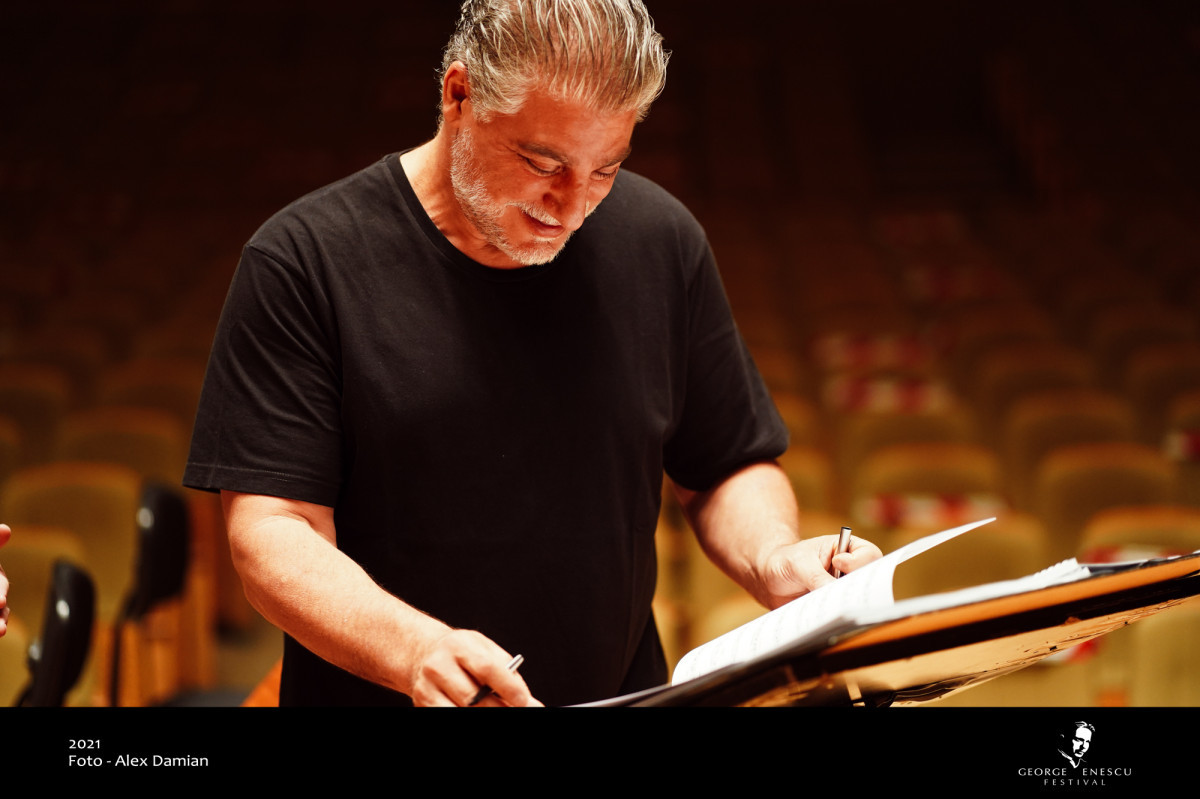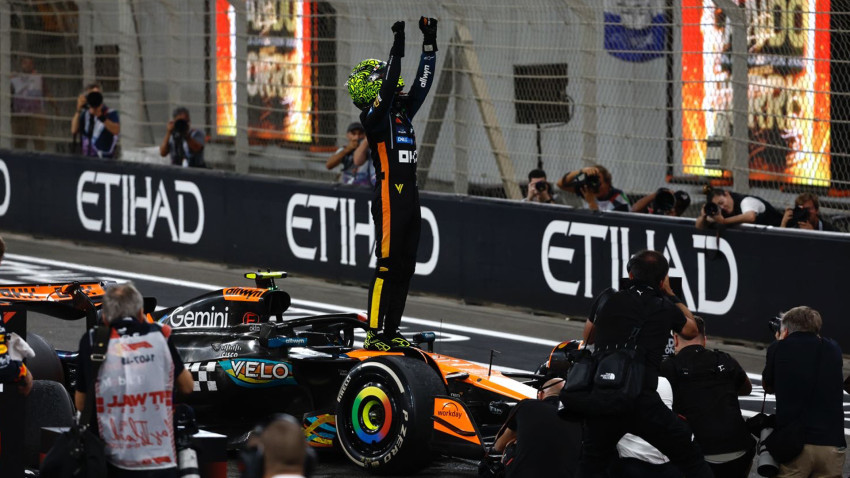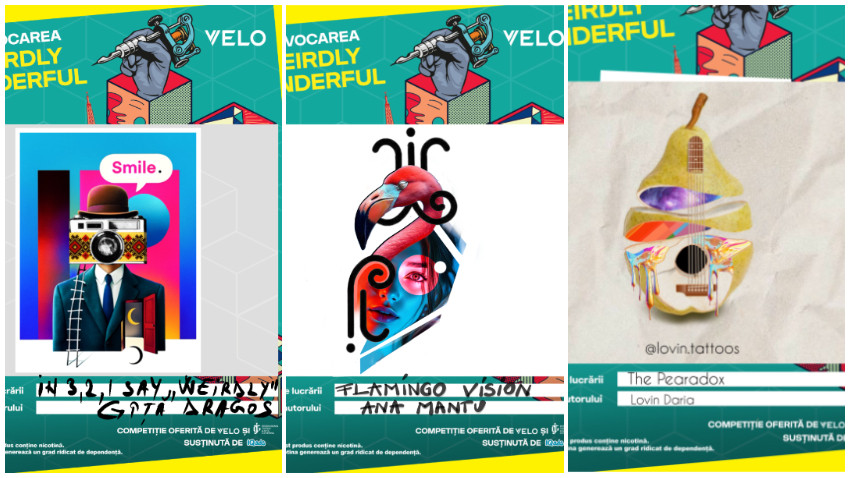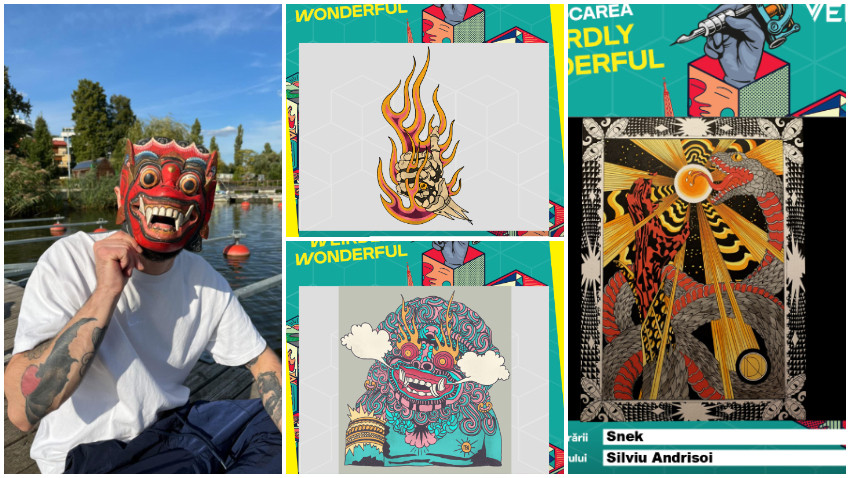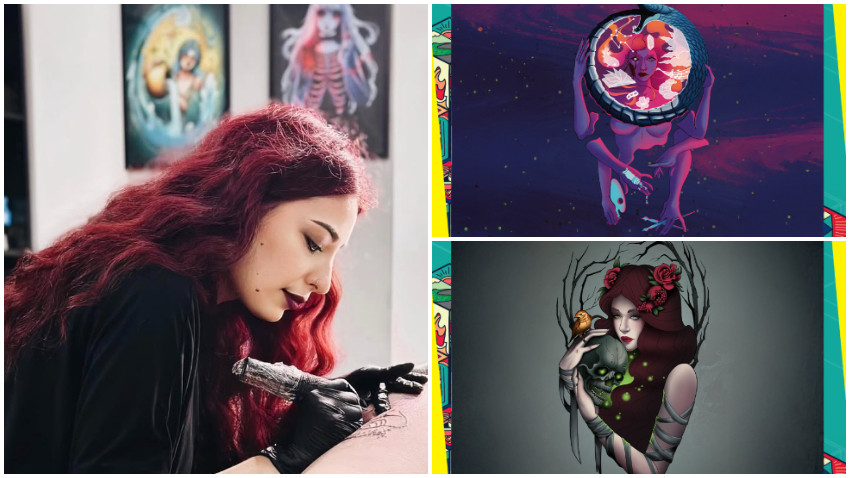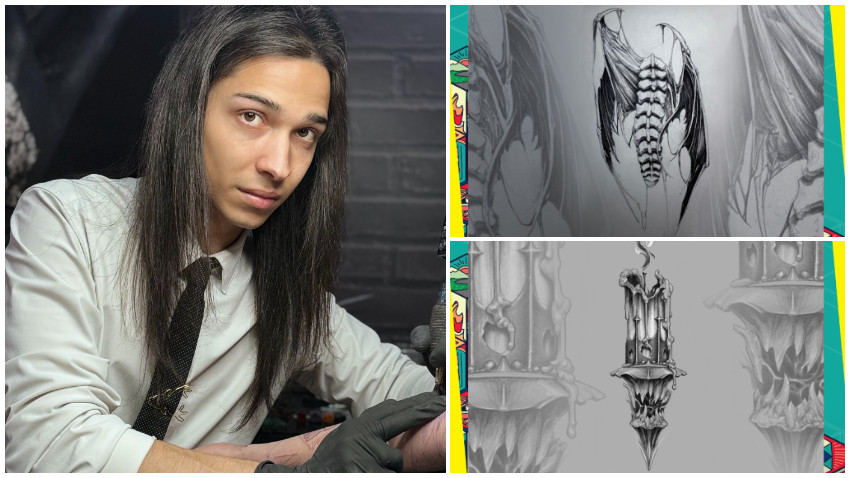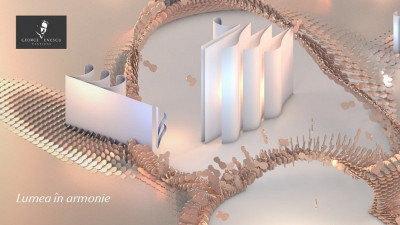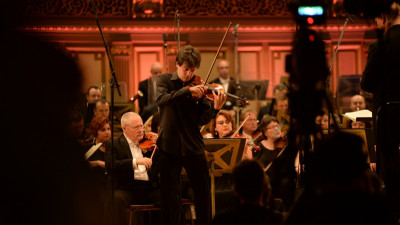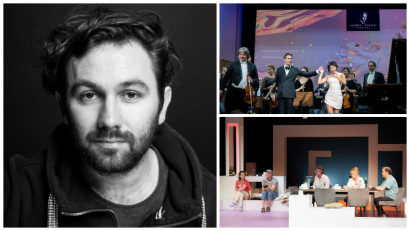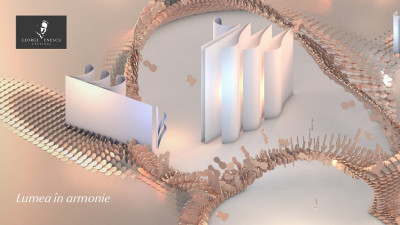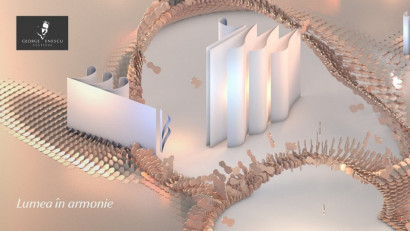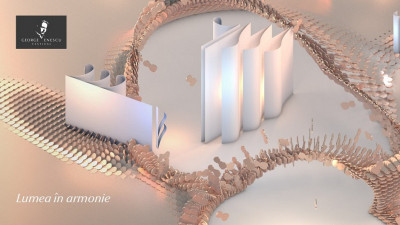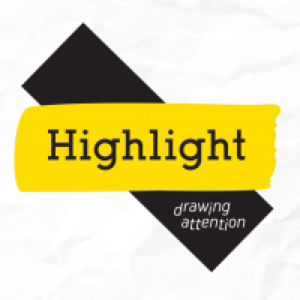He was 15 years old when he conducted for the first time in front of a large audience. It happened in a religious music festival. José Cura’s career started in Argentina during the military regime, which was followed by a fragile democracy, not a good ground for the success of a musician, as a conductor-composer. After studying composition and conducting in Rosario, his hometown, he moved to Buenos Aires in 1984 to hone his musical skills. José Cura recounts that the dean of the conservatory heard him sing, told him that his voice was unique and it would be a shame if he did not sing professionally, if only to be a better conductor, if not to have a career as a vocal soloist.
In 1991 he moved to Europe and his rise in music was one commensurate with his talent. He has worked with major orchestras such as the London Philharmonic, the Vienna Philharmonic, the London and Warsaw Symphony Orchestras, the Toscanini Orchestra and the Hungarian Philharmonic. José Cura is a complex musician, present and admired on the great stages of the world as a conductor, composer, vocal soloist and director.
In a conversation with IQads about his beginnings in music and his artistic journey so far, maestro José Cura shares his thoughts on how music has changed over all these years. He also speaks about the importance of talent in music and the mission of an artist.
"If we are not careful, the shortcuts provided by technology will, sooner than we think, seriously undermine the „human factor”. You ask me about the artists’ mission; I think this goes way beyond the artistic family and shall be a major society concern: to keep the human factor alive".
On September 23, José Cura will be on Romanian Atheneum stage on a double role in George Enescu Festival, as vocal soloist and conductor of Romanian Radio Chamber Orchestra.
Your feelings about coming back to Romania this autumn
I always enjoy being back in Bucharest to do music. There is an incredible mix of good technique and passion in Romanian musicians.
The connection with George Enescu Festival
My first connection with the festival was in 2008 when I sang “Carmen”. After that, due to changes in the administration, I lost contact with the festival organizers. Until fate, in the person of Mihai Constantinescu, brought me back to Bucharest. I met Mihai when he was manager of the Würth Philharmonic and it was instant professional friendship. That is why I wrote in 2021 a “Te Deum” for the anniversary of the festival —talking about Romanian musicians, in that occasion I worked with the amazing choirs of the Romanian radio—, and that is why I am back now with my Argentinean Songs’ program. It is also thanks to Mihai, who introduced me to the Enescu Philharmonic, that I will be back to conduct the season opening night in October 5th.
Your performance in the festival this year
Apart from songs by Carlos Guastavino, the Argentinean Schubert as he is called, I will also do the Romanian premiere of “Si muero, sobrevíveme!” (If I die, survive me!) - a song cycle based on Pablo Neruda -, and the first movement of my guitar concerto “Concerto para un Resurgir” (Concerto for a Resurge), written during pandemic.
The greatest value of this festival, in your opinion
Without doubts, the Enescu Festival is the most prestigious international festival for the stunning cast of performers that every two years are present in the musical “biennale”. But if there is one value, among many (the list is long!) is this amazing challenge of enduring in these hard times without having lost the legendary quality that made the Enescu Festival a reference in our business.
Back in time, about the journey that brought you where you are today
I am Honorary Professor of composition and conducting in the same university where I did my studies more than 40 years ago. Back then, I never thought about being a professional singer, but one of the best advices I ever had, changed my life forever: I was singing in a room of the university as part of my composing endeavors when the Dean of the conservatory heard my vocalizes and said that my voice was unique and that I would be an idiot if I didn’t sing professionally. Like most “young (silly) symphonists“, I was not very happy with the perspective of doing opera. But he added, “If you don’t want to be a professional singer, at least learn how to do it properly because that will make you a better conductor…”, a huge advice indeed that I could happily share with many conductors… The rest is part of the legend.
Career beginnings in Argentina
My beginnings in Argentina where during the military regime, and then during a very incipient democracy. To think about succeeding as a composer-conductor in those days was a chimera. So, I moved to Europe in 1991 to try my chances and, well, here I am…
Your first concert with an audience
My first time in front of a big audience was in an open-air religious festival in 1978. I had composed some of the pieces and I was conducting too. There were some 3000 souls listening that night. I was 15 years old.
Performing in front of an international audience for the first time
I moved from Rosario to Buenos Aires in 1984. That same year I had my first professional contract: one single phrase in Massenet’s Manon… (No way to give you an audience verdict with such a speedy deploy :-). Anyhow, next year will be 40 years of my first professional engagement! My first international performance, however, was the 25 July 1991 in and open-air concert in Genova, Italy. We performed several opera excerpts with the orchestra and the choir of the Teatro Carlo Felice. Conductor was Marco Armiliato. That day I sung my first “Nessun dorma” ever. Since then, I think I have sung it more than 500 times.
You conduct, direct, compose, sing. How can you do it all?
Things go in periods. I have just finished directing a new production of Tosca in Denmark so, after two years of preproduction and a month of full immersion for rehearsals, this job is over and I am getting ready for the next which is conducting Puccini’s “La rondine” in Hungary —a piece I know very well having conducted it several times and also directed it 10 years ago— and then, after singing a concert of “Boleros” in Bratislava, I will be coming to Bucharest for the Enescu Festival. The only way to deal with such a schedule is not only to perfectly organize your calendar, but also to work with lots of anticipation. No way to wait until the last minute to get ready. Preparation is crucial.
How much is work and how much is talent in making music
People speak about talent as if talent would be the final product. Talent is not the “tree”. Talent is the “seed" that may or not become a tree one day. All depends on how much you care about, dedicate to, your efforts and patience, not giving up when the wind seems to bend your “plant”, and mostly never giving things for granted. If you are ready to invest a minimum of ten years of your life to see if your “tree” grows enough to become an “interesting plant” that deserves to be shown (and sold…), then you can do this job. But if your spirit is today’s fashionable “minute-made” kind of success, you better look for another job because after your “few days of glory” are gone, you will surely disappear. A long and healthy career is only possible if the “seed and the tree” fable is implied in your life plan.
The the most important thing you've learned about music
As many musicians, I was long convinced that the only secret to properly perform a piece was to maniacally stick to what’s written. Until one day I understood that the secret is somewhere else. Mind you, I am not talking about the musical anarchy that disrespects the author, but about putting aside the obsession of having “precision” as the only “goal” of our performances, while plunging in search of the “unwritten things” that make the difference. In straight theatre we call it the “subtext” and its discovery causes the necessary epiphany in an actor to fully enlighten his portrayal. Same happens in music: if you stay alert to the “landscape” along the way instead of being obsessed with the “traffic signals”, a whole new world opens to your senses. The challenge though is how to enjoy the landscape, without neglecting the street signals and so having an accident. That quest for an ideal balance between the written texts and the “subliminal” that inhabits among its lines, is the main goal of my artistic momentum.
How you feel before a concert
Every single day, I feel privileged to be able to earn my living by doing such a fascinating job. The other days, I was watching the performance of my new production of Tosca from the audience, —a rare thing for me since I’m always on stage—, and I was in tears not just for the show emotions, but thinking “Oh my God!, what a huge work we have done together. What a mixture of pride and responsibility knowing that each square centimeter of the stage, each gesture of the actors, each team action, has been provoked by my imagination before being developed by each individual as their own, hence giving birth to the show”. If you love this job, such feelings can become dangerously addictive. Trust me. I don’t want even to think about the day I will watch my “last curtain” closing behind me… I can assure you that this potential “widowhood” is the main reason for most artists to endure after decades —mostly being shadows of themselves—, until stepping down is inevitable. There is no such thing as a true artist in pension. You may stop being part of the machine, but your artistic soul only dies when you die. Only being a composer may give your soul some chances of “staying around” once you’ve gone, provided people like what you’ve wrote, of course…
Before a concert. What you do, what you don't do
No rituals. If I am in good health, a good rest the day of the performance is all I need.
What pop artists you listen
I belong to a generation that was brought up with the great pop musicians of the XX century: Sinatra, Crosby, Bennet, Taylor, Fitzgerald, Franklin, Beatles, Jones, Bacharach, White, Mercury, Jackson, Prince. You name them. However, my absolute preferred singer, even more than any operatic one, is Karen Carpenter. The purest sound, amazingly effortless emission, perfectly pitched and round without tricks like “Autotune" and similar “make-ups” to disguise the sad reality that many (luckily not all) of our pop singers today are a “synthetic succedaneum" of what a real pop singer used to be. “If you manage to sing opera with the same easy perfection Karen Carpenter used to sing pop, you’ll be amazing”, I use to say to most young singers asking me for voice models.
Your thoughts on how music has changed since over time
Once upon a time, you got to have a solid, tested “product” to get into the market, hence become famous. Eventually, with time, you would mature and you would go from being considered “just a product” to be respected as an “artist”. Until one day, many years after that, people start calling you “maestro”, not due to a “rank distinction” but out of “true respect”. I went through all those layers in the business, so I can tell by personal experience.
Today most talents are burnt out way before they can even reach the second step in the above-mentioned scale. The apparent sense of “democratic justice” that allows everyone to display a product in the “internet window” without even caring about the solidity of the product, let alone its quality, is creating an ephemeral illusion of success that’s very dangerous: fame and greatness are not synonyms and by becoming famous before your greatness is solid enough to cope with the pressure such fame generates, many talents burn their chances before finding out if they could have really made it, and not just being another comet, milked out by unscrupulous show-biz operators. On top of this business considerations, what’s even more serious, are the human dramas this “fake success” creates in many: when with the same speed you touch the sky you hit the floor, the psychological consequences are very hard to digest.
What the mission of an artist nowadays is, in your opinion
Lots have been said about the so-called mission of artists along the centuries. This list of “social tasks” keeps on changing with times, adjusting to the changes in society. An artist that cannot “read” the needs of his era and insists on forcing in, into the present community, things that were useful for a previous “social engine”, is not only idiot, but a useless dangerous kind of idiot. But mind you, going on with the “tree” example, no matter how daring the plant is in trying to reach the most unexpected places with its branches, if the tree cuts its bonds with the roots, he dies. The only positive evolution is the one that respects those things that made us what we are.
I am passionate about this and could talk for hours, but since it’s not possible, I would like to point out something that is becoming a huge threaten: if we are not careful, the shortcuts provided by technology will, sooner than we think, seriously undermine the “human factor”. You ask me about the artists’ mission; I think this goes way beyond the artistic family and shall be a major society concern: to keep the human factor alive. Despite the fact that, doing music with computers is becoming a very comfortable, cheap, hence tempting possibility, the human chemistry that takes place when a flesh and blood performer displays skills meters away from the listener is the closest thing to a “skin to skin” human rapport. I wonder if those who experiment enough pleasure in replacing “humans that perform for humans”, would also enjoy making love to their PCs.



